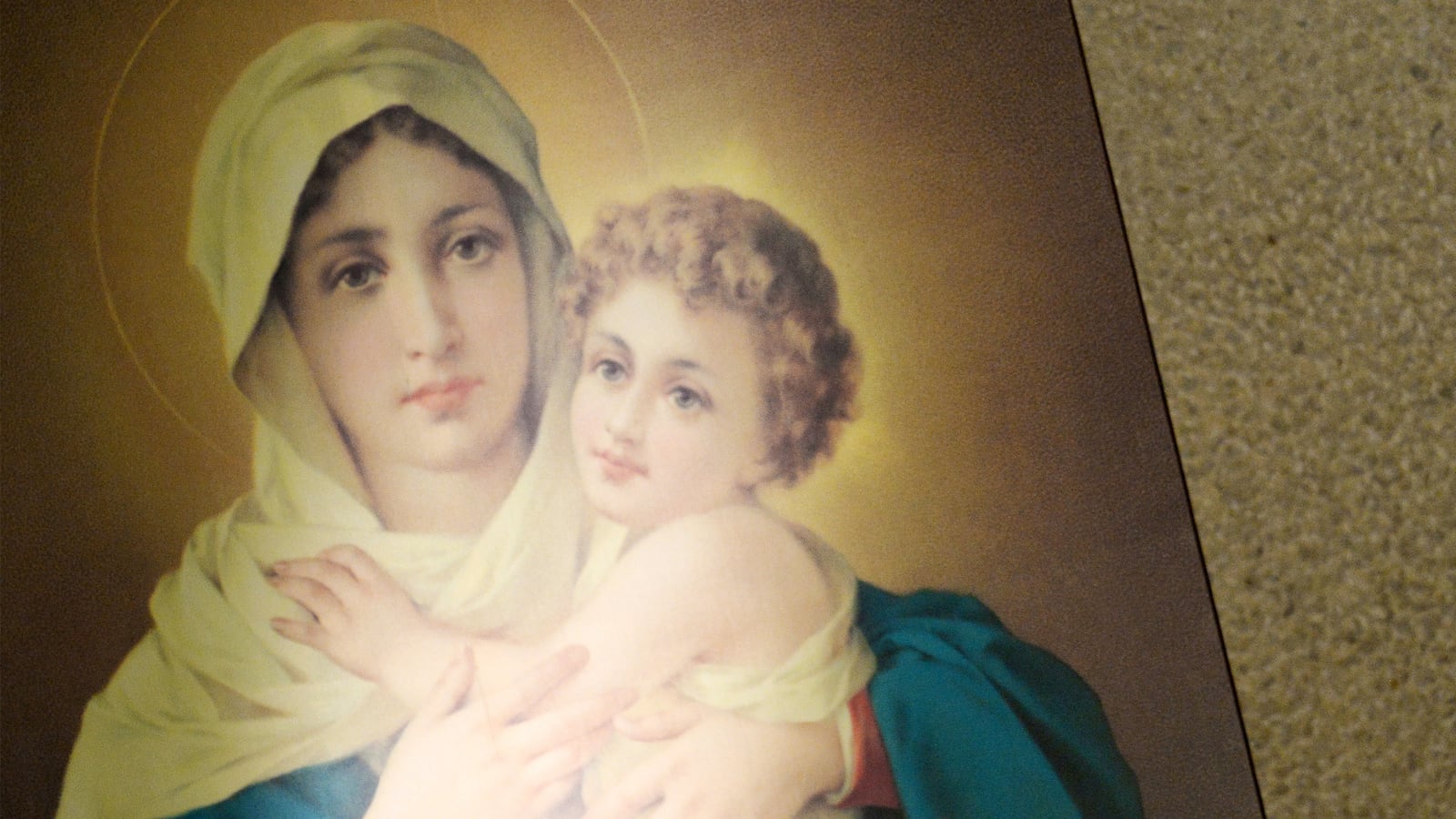There doesn’t seem to be anything special about having a “day” anymore. Mother’s Day, Father’s Day, Grandparent’s Day, Administrative Professionals Day, Hallmark has a calendar to rival the continuous saints days of the medieval Catholic Church. Perhaps it is a symptom of the demise of meritocracy—every kid gets a prize; every social role gets a day. Or perhaps Mother’s Day is just an excuse to use up all the leftover pastel-colored stock paper from Easter.
All the same, Mother’s Day and the maternal role of women have a little bit more cultural clout. Women have been celebrated for their procreative abilities—if almost for nothing else—for time and memorial. Joseph Campbell saw the life-giving role of the feminine principle as a foundational element of human mythology. From Fecunditas, one of many Roman fertility goddesses, to Atahensic, the Iroquois sky goddess, every culture has its child-bearing deities. And with those goddesses came festivals and rituals celebrating birth, motherhood, and fertility.
Some of these goddesses, though, see a little more (ahem) action than others. While Aphrodite is a fertility goddess—since even the ancient Greeks knew that sex leads to procreation—the Roman goddess Diana is paradoxically both a virgin and responsible for overseeing childbirth. Diana is not alone. The preeminent example of maternal love divorced from sexual union is Mary, the mother of Jesus (although, to be clear, she’s not considered a goddess). According to Roman Catholic and Eastern Orthodox tradition, Mary conceived Jesus apart from intercourse and remained a virgin her whole life.
Mary’s importance is most acutely expressed in the number of festivals celebrated in her honor. There are more than thirty Marian feast days in the Roman Catholic calendar, including celebrations of Mary’s visit to Elizabeth, her assumption into heaven, her birthday, and the Immaculate Conception. Fun fact: contrary to what people think, the Immaculate Conception refers to the conception of Mary, not the conception of Jesus. This will be a Jeopardy question one day, I’m sure of it.
(If it seems that step-father Joseph gets a raw deal here, then perhaps you’ll be relieved to hear that newlywed couples in medieval Europe often dedicated their wedding night to St. Joseph in honor of his sexual continence. This is something that I highly recommend you spring on your spouse at the last moment just to see what happens.)
But commemorations of motherhood, whether ancient religious or contemporary consumerist, aren’t all good. Mother’s Day celebrations—whether religious or secular—can serve as painful reminders of loss. For those struggling to have children, who grew up without or have lost their mothers, or whose mothers were abusive, Mother’s Day and the advertising that surrounds it hammer home a message that something is missing.
The problem isn’t just in the commercialization. Churches often have mothers and children come up to the front of the church for a special blessing and figurative bow on Mother’s Day. This is a lovely tradition for the participants, no doubt, but it is an isolating experience for childless women who are left sitting on the bench and kneeling in the pew. Some feel indignant that women are celebrated only when they are mothers, while others find that the lives they want for themselves, but cannot have, are paraded in front of them as they are made to feel like failures.
Then there are the practical issues. If the traditional Mother’s Day begins with a lie-in child-made breakfast in bed followed by the bestowal of a hand-made card and a Kay’s heart necklace (the only real way to show you care, I understand), this is an experience that is rather unavailable to the single parent with younger children. Someone has to oversee the cooking of said breakfast and the culling of daffodils from the garden. Mother’s Day requires money and a social support system. Without those the whole thing might just seem exhausting.
The false advertising associated with motherhood didn’t originate with the good people at Hallmark, of course. Renaissance depictions of the birth of Jesus show a radiant Mary, without a hair out of place, calmly cradling her infant son. Post-partum Mary really gives Kate Middleton a run for her money. Ancient commentators thought that Mary’s labor and delivery were authentically painless, due to her elevated moral status and sinlessness. The eradication of pain from the birth of Jesus means that Mary—the ultimate Christian icon of motherhood—is as out of reach as any Photoshopped celeb or well-managed royal.
I do not mean to suggest that we should do away with Mother’s Day. In a society and religious landscape that is dominated by the accomplishments of men, the more acknowledgement of women the better. But singling out maternal love as the only female accomplishment worth setting aside a day to celebrate may well mean alienating those who cannot, choose to not, or simply have not experienced it.






